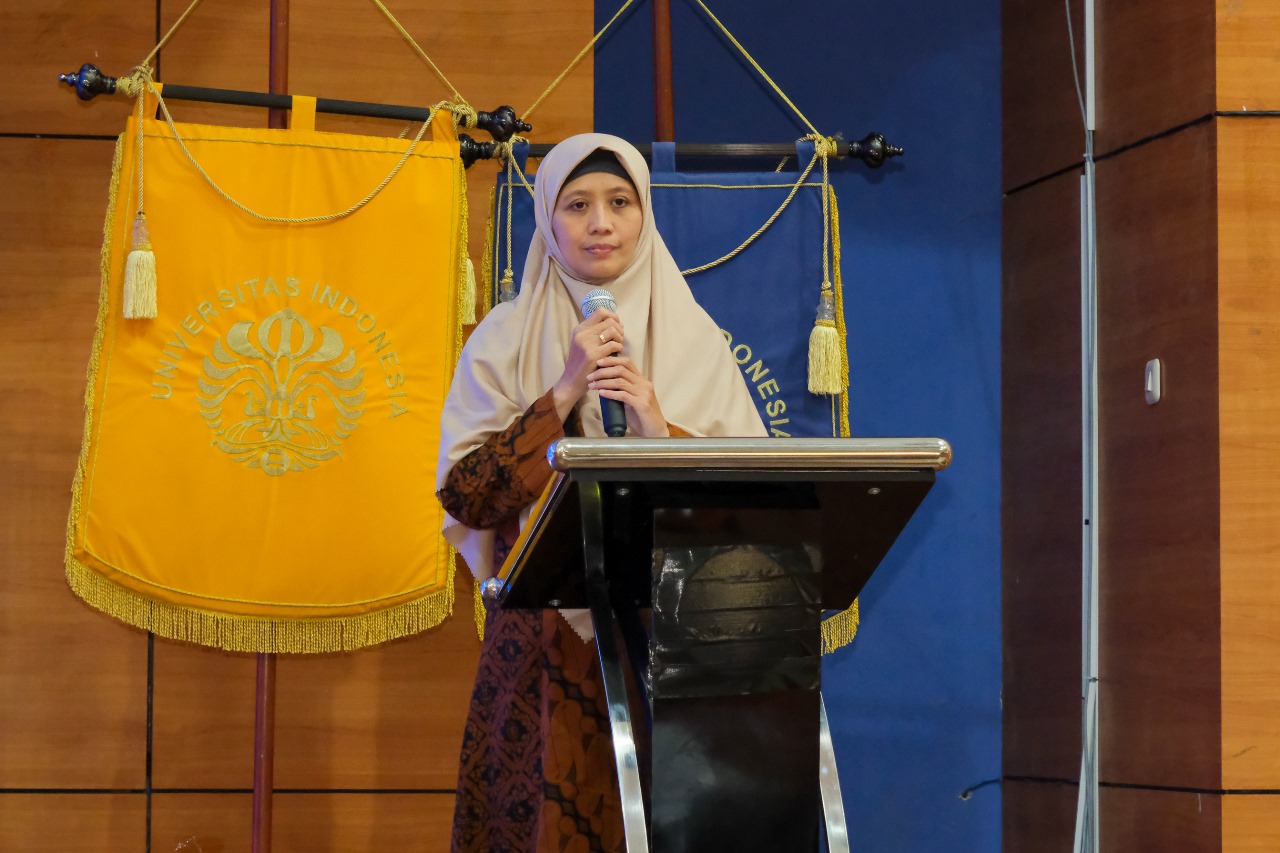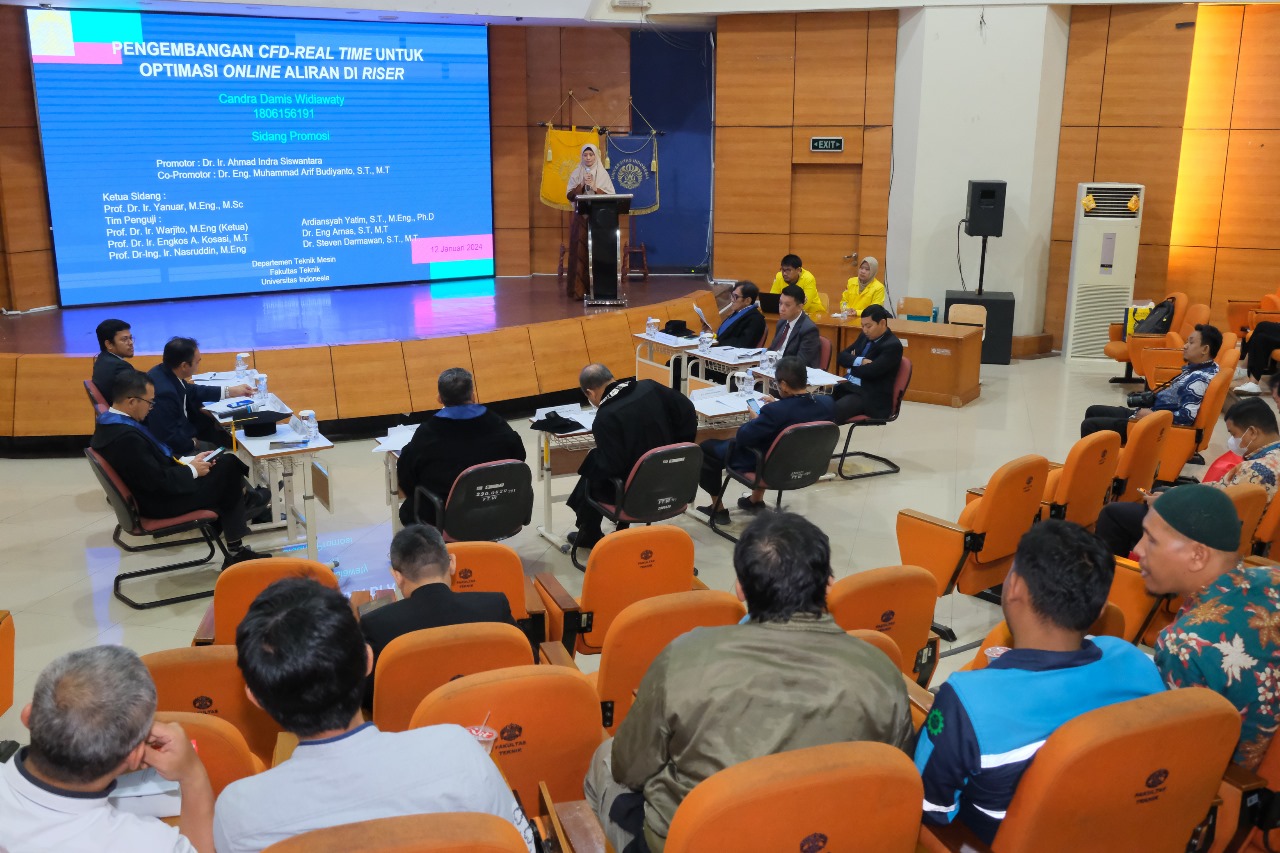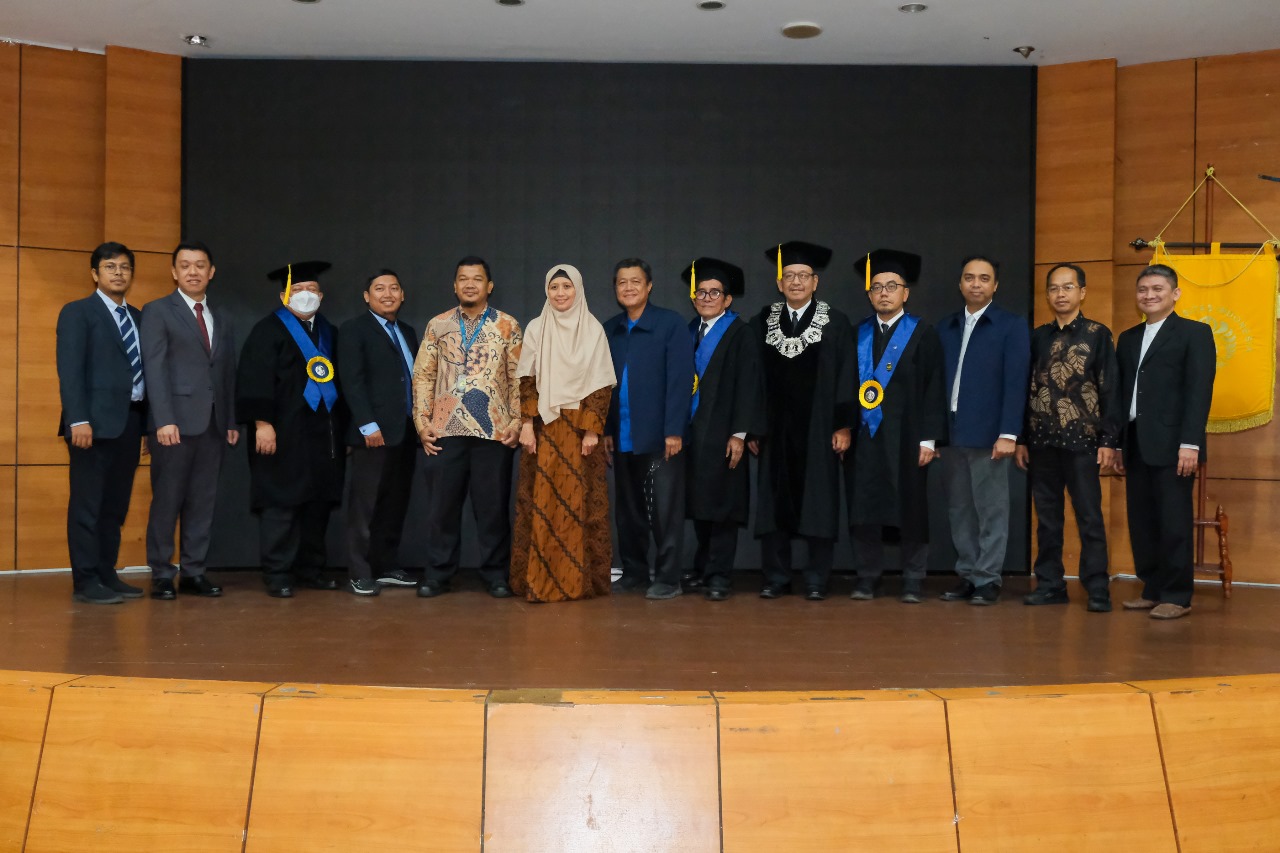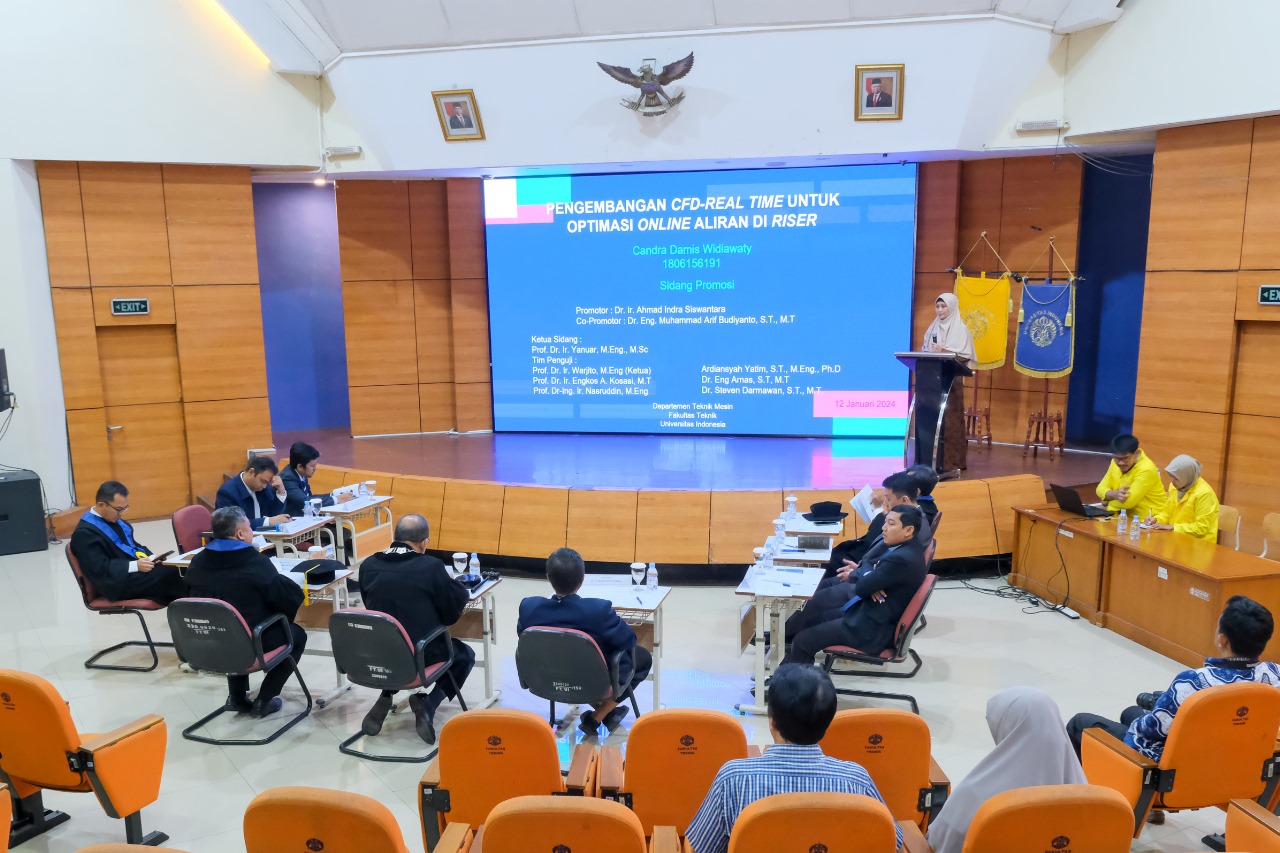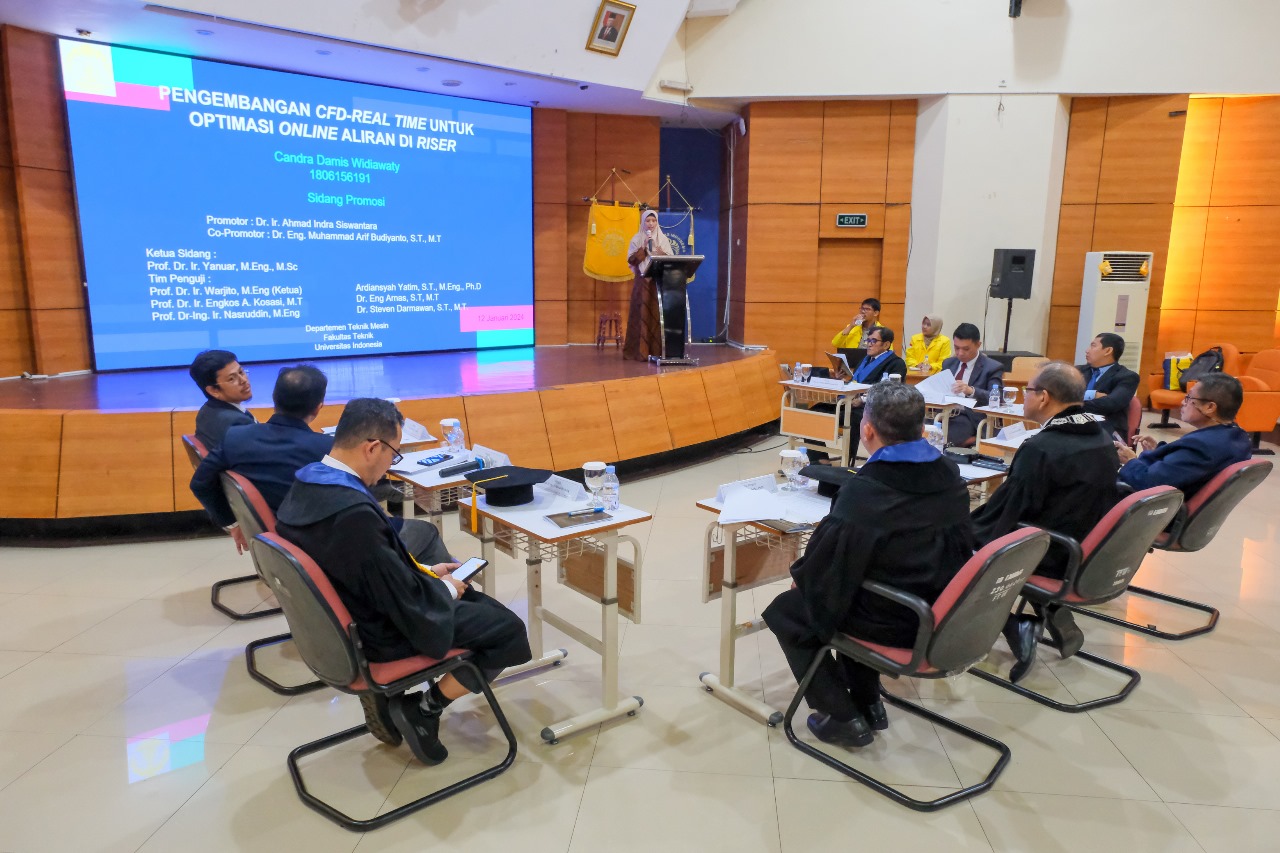Candra Damis Widiawaty, a doctoral student from the Department of Mechanical Engineering at FTUI, researched the development of fluid flow technology. This research is encapsulated in her dissertation titled “Development of Real-Time Computational Fluid Dynamics (CFD) for Online Optimization of Flow in the Riser” and was presented at the open defence for her doctoral promotion held on Friday (12/01/2024) at the Auditorium K301 FTUI.
“At present, the government has set a target to achieve the use of vegetable fuel by 11.6 million kiloliters. One of the technologies that can support this policy is Fluid Catalytic Cracking (FCC). The components of FCC include the regenerator, riser, stripper, and fractionator,” explained Candra in her presentation opening.
The regenerator functions to clean the catalyst from carbon after the cracking process. The riser serves as the site of the cracking process. The stripper is used to separate the catalyst from the vapour product. The fractionator acts as a distillation column that separates products based on their dew points. FCC is a technology for converting long-chain oil feed into valuable liquid products such as biogasoline (C6-C10) through a heating and catalytic mechanism. High temperature and catalyst break down the feedstock, which can be in the form of particles or vapour, in the riser. The catalyst enhances the heat transfer process in the riser. The results of the cracking process consist of gas and liquid products.
Candra stated that this research aims to develop online optimization of two-phase air-particle flow. “The research object is the Riser. Online optimization is performed on single-phase flow since velocity sensors for two-phase flow connected to data acquisition are not yet available. Two-phase simulation data is synchronized with acquisition data so that single-phase experimental conditions can represent two-phase conditions. The two-phase condition parameters used in this study are particle height and particle fraction,” she explained.
Dean of FTUI, Prof. Dr. Ir. Heri Hermansyah, S.T., M.Eng., IPU. stated, “The contribution of this research is the development of online optimization using ANN (Artificial Neural Networks) and PSO methods that utilize CFD data to build optimization models. This research can serve as a reference for online optimization in systems with complex flows, overcoming limitations in measuring tools to record flow phenomena. Thus, this research directly enhances the usefulness of CFD as a provider of training data for ANN. Additionally, this research serves as the initial step in building a digital twin for a specific conversion engine, particularly in real-time phases.”
This dissertation on the Development of Real-Time Computational Fluid Dynamics successfully earned Candra Damis Widiawaty a doctoral degree in Mechanical Engineering with a predicate very satisfactory, GPA of 3.95. Candra is recorded as the 105th doctoral graduate from the Department of Mechanical Engineering and the 534th doctoral graduate from the Faculty of Engineering at the University of Indonesia. The Promotion Defense was chaired by Prof. Dr. Ir. Yanuar, M.Eng., M.Sc., with Dr. Ir. Ahmad Indra Siswantara as the main supervisor and Dr. Eng. Muhammad Arif Budiyanto, S.T., M.T., as the co-supervisor. The examination committee consisted of Prof. Ir. Warjito, M.Sc., Ph.D.; Prof. Dr. Ir. Engkos Achmad Kosasih, M.T.; Prof. Dr.-Ing. Ir. Nasruddin, M.Eng.; Ardiyansyah, S.T., M.Eng., Ph.D.; Dr. Eng Arnas, S.T., M.T.; and Steven Darmawan, S.T., M.T.
***
Office of Public Communication
Faculty of Engineering, University of Indonesia

